Ah Hollywood, you’ve done it again. You’d think after all the recurring backlash, professionals in the industry would have learned from the raging slew of online petitions, passive-aggressive movie reviews, and passionate YouTube commenters of years past. But alas, here we are again at the subject of yet another white-washing controversy: Netflix’s Death Note.
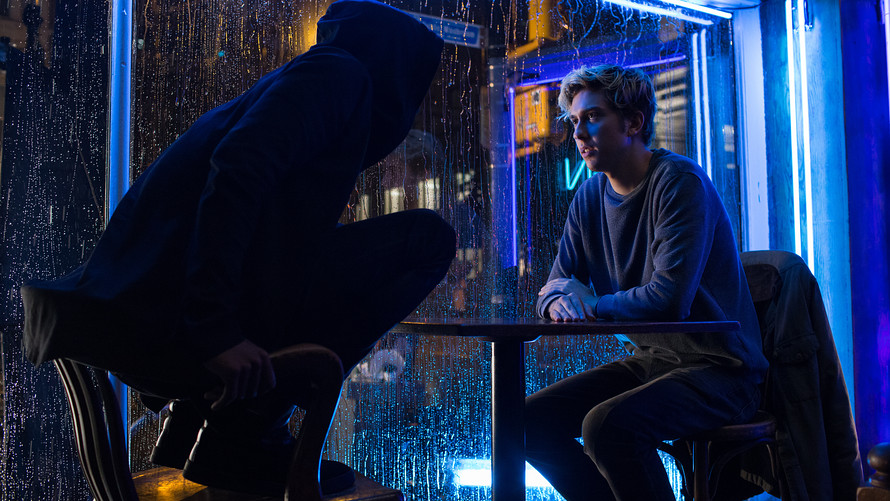
Death Note, with all its well-deserved praise and ability to hook newcomers into the anime genre, has been ranked as one of the most popular and acclaimed Japanese animations of all time. And in the perfect world, perhaps the media would’ve kept it that way. Sadly, we instead live in a world where abominations like the live-action Dragonball movie are allowed to exist – so this was unfortunately not the case.
In the past few months, it seems like Netflix has decided that what they needed was the white-hot hate of all anime fans to keep them going in the public sphere, having recently dropped a trailer for their motion picture adaptation of Death Note last March. But wait – before you celebrate the thought of seeing your favourite clean-cut-killer-maniac Light Yagami in all his live-action glory, clearing out the streets of a criminal-ridden city in Japan, you might want to hold your breath for this one. Light, the beloved young Japanese boy with a penchant for dramatically narrating his every decision and dropping more twists than a Shyamalan movie… will be played by the All-American, Caucasian actor, Nat Wolff.
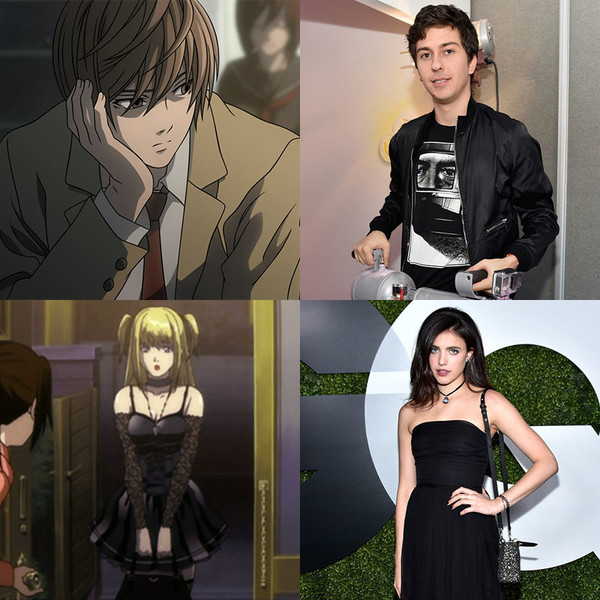
Cue the cries of all outraged anime-loving netizens; that’s the biggest Death Note-related plot twist since the events of the series itself! And unfortunately for all the disappointed fans, the “whitewashing” doesn’t end there. Everyone in the main cast has been replaced by “white” actors, and the setting has been changed from Japan to Seattle – where the most Japanese thing about the place are the rows of Subarus lining the roads at every turn.
In true internet (and fan culture) fashion, Death Note lovers were all over the new trailer like white on rice (ha HA), lashing out at the producers for yet again having some sort of vendetta against casting Asian actors in what are clearly Asian roles.
In all fairness and honesty – the trailer doesn’t actually seem all that bad. Being a obsessed Death Note fan myself, it seems to have an exciting pace to its direction while maintaining its tone of mystery – and I’m curious to see how the story is set in a completely different environment, within a completely different cultural context. As a plus, the casting of Willem Dafoe as Ryuk was an impressively perfect choice, whether he merely lends his voice or physically stars as the demonic death god himself.
Though that’s not to say I don’t get the outrage of the majority of fans – while not being too disgruntled over the American remake (further explanation to come later), their anger is understandably justified. Sure, La La Land isn’t known to produce All-Asian casted projects – exceptions include the recent sitcom success, Fresh off the Boat, and the Academy Award-winning hit, Slumdog Millionaire – as these would usually be produced by Asia-based film companies themselves. But Hollywood has made that frequent faux-pas of white actor-casting even the very few, or perhaps even singular, Asian or PoC role in an adaptation – let alone cast an entire non-Caucasian ensemble for an originally non-Caucasian film or series.

A list of every example would be a bit too extensive, but a few incidents worth noting include Emma Stone as the Chinese-Hawaiian Alison Ng in Aloha (2015), Lawrence Olivier who went literal blackface as Othello in Othello (1965), and John Wayne as the perplexingly miscast Gengis Khan in 1956’s The Conquerer. However, on the subject of Asian media and blundered anime adaptations, it seems the second most recent casting mistake to Nat Wolff’s Light Yagami is Scarlett Johanssen as the Japanese cyborg, Major, in 2017’s Ghost in the Shell.
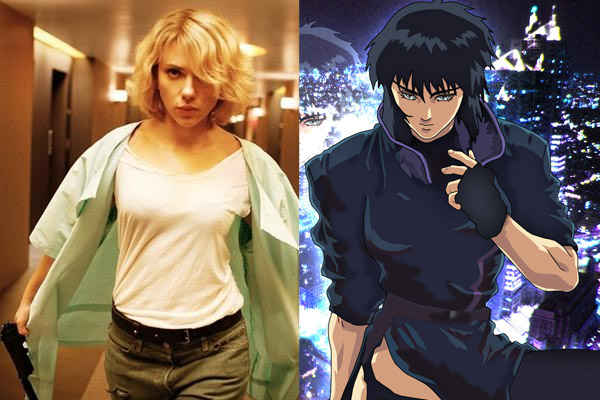
It comes as no surprise that these casting decisions received enough critical heat to melt the shoe polish right off Olivier’s face, but filmmakers and moviegoers alike have come to the defence of such choices with what arguably seem like substantial arguments:
Asian actors aren’t “bankable” – in the case of Ridley Scott, he actually expressed that he couldn’t “mount a film of [such an expensive] budget” with a lead actor named “Mohammad so-and-so from such-and-such”.
Anime characters look “ambiguous”, so by default, Hollywood sees them as “white”.
Having been stated by actual professionals in the industry – who assure us they know what they’re doing – how are we, mere commoners in the realm of pop culture audiences, to judge? Max Landis, the screenwriter for 2017’s Ghost in the Shell, brazenly states in his explanation for the film’s casting that many outraged viewers sadly do not “[understand] how the industry works”.
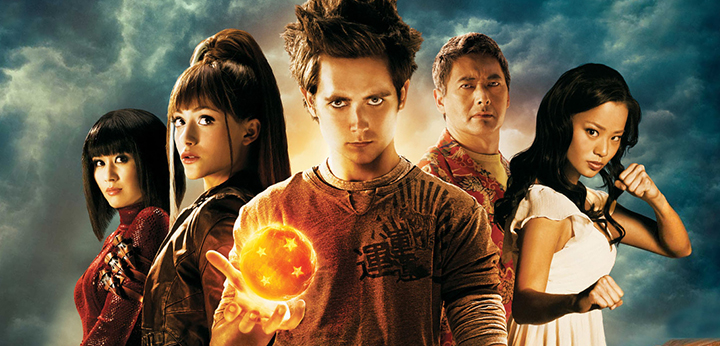
While that sadly is true for the many of us who merely consume entertainment, there are also a handful keen-eyed moviegoers who are quick to point out the flaws in these retorts, rebutting with their own eye-opening arguments:
If Asian actors aren’t A-lister enough to rake in the dough – casting “white” substitutes certainly hasn’t helped in financial success. With Netflix’s Iron Fist receiving lukewarm reception, the started-and-scrapped Akira remake Warner Bros.’ tried to pull back in 2011, and dare I bring up the whole Dragonball debacle again – we needn’t look too far for cases on this one.
If Anime characters are meant to be ambiguous, why is it that Hollywood defaults to mainly “white” actors for casting? Why not Latino, or bi-racial choices? Why were Texas and New York-born actors chosen for the lead roles in Avatar: The Last Airbender‘s film adaptation – when the original series had a character set of mainly Asian and Inuit descent? Additionally – there are many anime characters claimed to be “ambiguous” by producers involved in a remake, though retain Asian names and influences, as with the case of ScarJo’s Major Kusanagi from Ghost in the Shell.
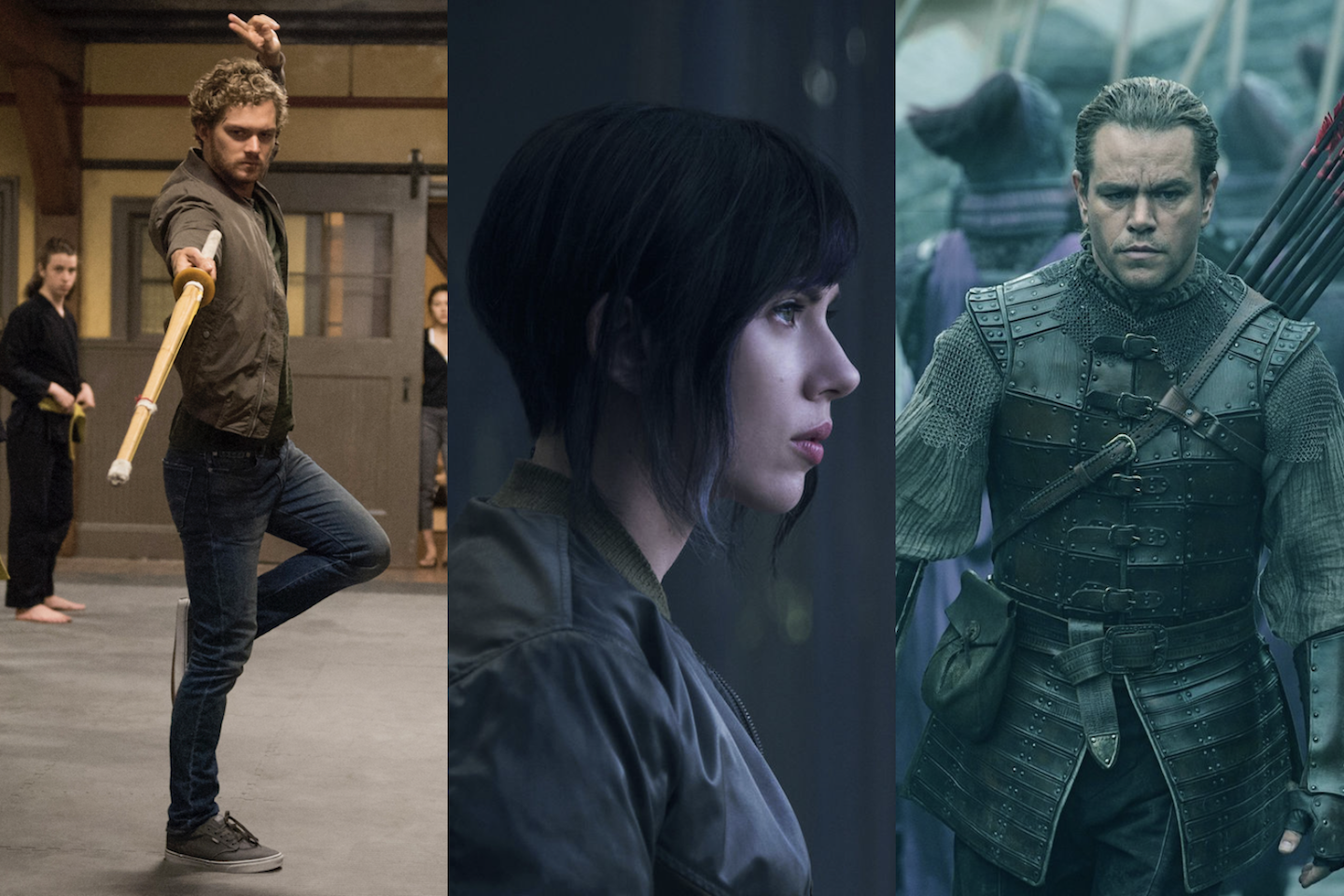
Hollywood filmmakers may want to take these thoughts into account – though there’s a high chance such discussions around this topic aren’t dwindling anytime soon. If there’s potential to break bank with successful Asian media – however grossly unnecessary – it seems like producers just can’t seem to help themselves. One only needs to read the unnerving reports of a Train to Busan Hollywood remake to find that the adaptations don’t merely end with Japanese anime.
Personally, I find that there may be a way filmmakers can approach the material without sending a barrage of death threats to their inbox – consistency. If you’re gonna Americanize-slash-recreate an originally Asian series or film with Caucasian actors, at least make the decent change of modifying their names, their ethnicities and the cultural setting to match. This way, any accusations of “being too lazy” to find a suitable Asian actor for a character of obvious Asian descent, in an Asian-based environment and plotline to boot, can be avoided. 2014’s Edge of Tomorrow did it well. And while the fangirl in me couldn’t help but cringe at the initial sound of “Light Turner”, perhaps this approach is why my saltiness towards the upcoming Death Note remake isn’t too strong just yet.
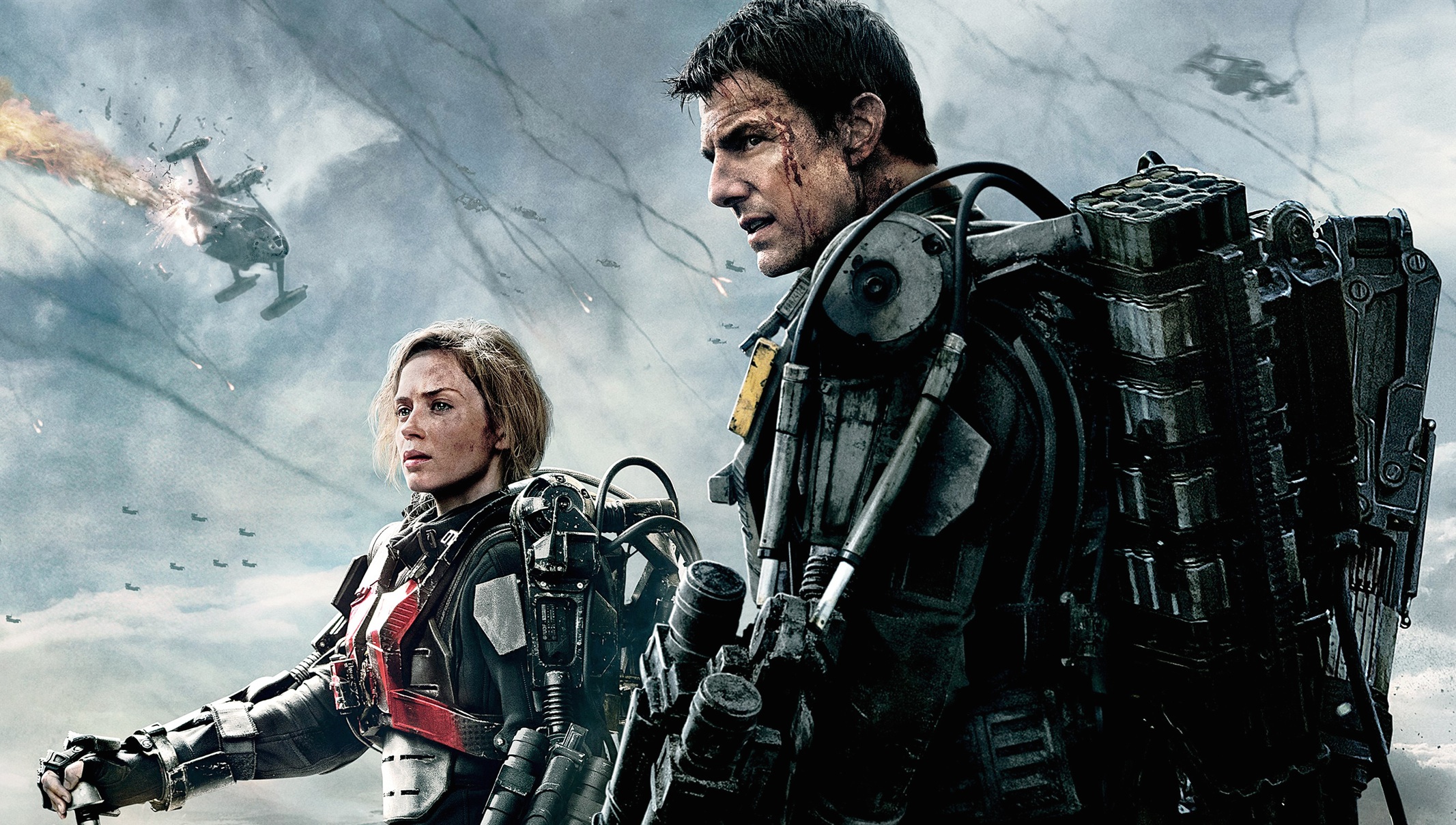
It’s sad to see many Asian talents overlooked for roles clearly meant to be casted by their race. It’s even sadder – and quite disturbing – when you find out that the Caucasian actor chosen instead is then made to even look Asian, sometimes going so far as experimenting with CGI to get more convincing modifications. Fortunately, progress seems to be taking place in the field of television, with Aziz Ansari’s Master of None, Filipino actors getting the spotlight in Crazy Ex-Girlfriend, and Ken Jeong’s Dr. Ken, all cable hits that prove these guys can be just as a “bankable” as the cast of Richard Linklater movie.
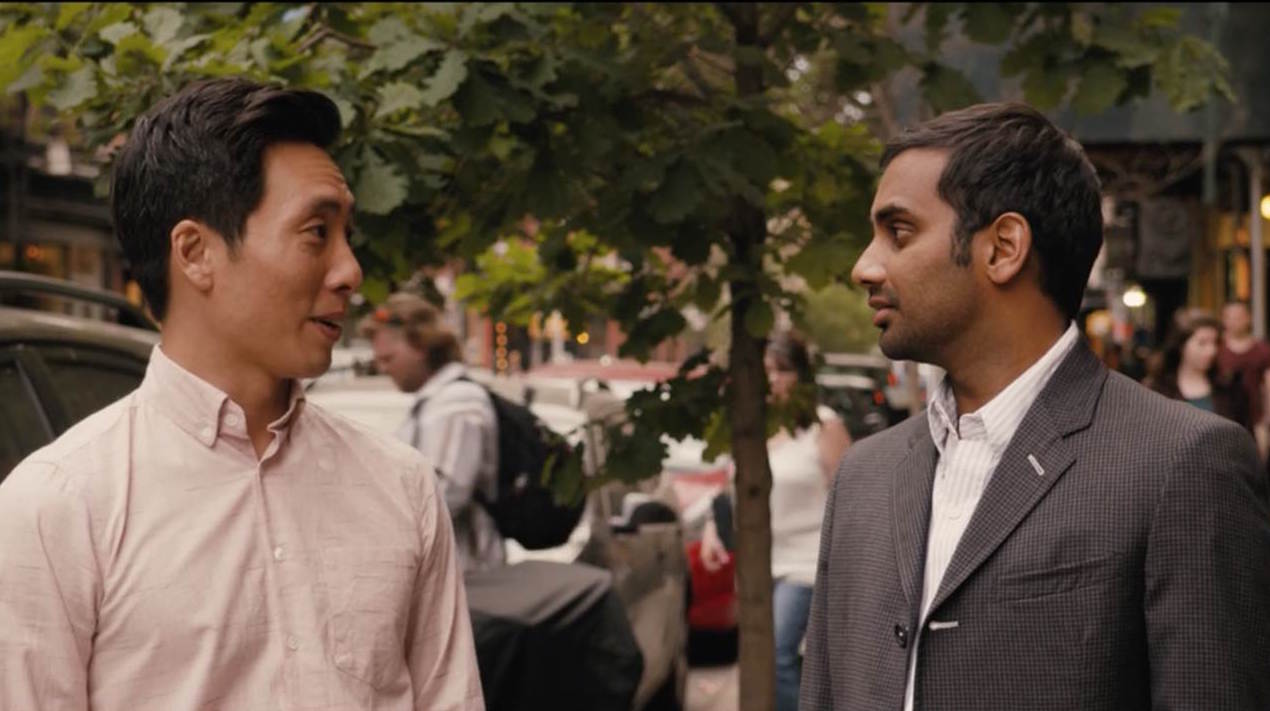
Though it seems, in the world of anime remakes – Hollywood’s still got a long road of redemption to go.







